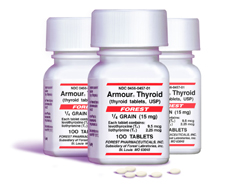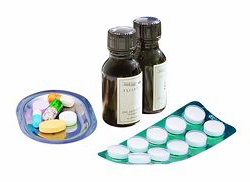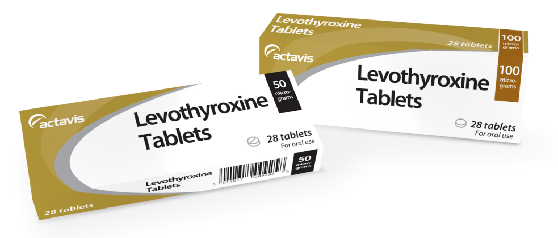Popular Articles
- Thyax Supplement Facts
- Best Thyroid Supplements
- Natural Alternatives to Synthroid
- T3 - Weight Loss
- Thyroid Health - Natural Ways to Boost an Underactive Thyroid
- Armour Thyroid Review: Drug for Underactive Thyroid
- Thyroid Health | How to Boost T3 and T4 Levels
- Thyroid Health | The Best Vitamins for Hypothyroidism
- Ginger and Weight Loss
- Best Weight Loss Supplements for Men and Women
- More Articles ...
 How Effective is Desiccated Thyroid?In This Article
For over a century desiccated thyroid extract has been used to treat hypothyroidism. This crude remedy is one of the old remedies from traditional medicine to be fully adopted by orthodox medicine. But then thyroid drugs came out of the labs and doctors stopped prescribing desiccated thyroid. Is it any less effective now? Why are doctors no longer championing this natural remedy? Is desiccated thyroid safe? Read on to find out.
What is Desiccated Thyroid?Desiccated thyroid extract is the cleaned, dried and powdered animal thyroid gland extract. The pork thyroid gland is the most commonly used source of desiccated thyroid but beef thyroid may also be mixed with it. In preparing desiccated thyroid, the fat and connective tissue are removed from the pork thyroid gland before it is dried and grounded. In the powder form, the desiccated thyroid is then mixed with binders and fillers before it is pressed into pills. The most popular brands of desiccated thyroid are Armour from Forest Laboratories Inc. and Naturethroid from RLC Labs. These natural thyroid pills are available in different strengths standardized according to grains. Each grain weighs 65 mg and contains 38 micrograms of triiodothyronine or T3 and 9 mcg thyroxine (T4). The ideal ratio of thyroid hormones (T3 and T4) in desiccated thyroid pills is 4 parts T4 and 1 part T3. Although desiccated thyroid pills are taken for their T3 and T4 content, most of the pills’ weights are taken up by other constituents of pork’s thyroid glands. Other active constituents of desiccated thyroid are diiodothyronine (T2), monoiodothyronine (T1), iodine (bound with protein) and calcitonin.
Desiccated thyroid became popular in the US after it was successively used to treat a few cases of severe hypothyroidism in the UK. For a long while, it was the only treatment for hypothyroidism and it is still used today. However, in the 1960s, doctors were quickly replacing desiccated thyroid extract prescriptions with levothyroxine as well as T3 and T4 combinations. Since desiccated thyroid remains effective, many believe this sudden shift was simply a move to modernize the treatment of thyroid problems. Why Doctors Prefer Synthetic Thyroid DrugsEndocrinologists believe desiccated thyroid is an antiquated remedy for hypothyroidism. However, there are other reasons for the shift to new thyroid drugs. Discussed below are some of the big reasons driving this change. Batch Variations in Desiccated Thyroid PreparationsAlthough the USP (United States Pharmacopeia) specifies the standard concentration for T4 and T3 in thyroid gland preparations, the reality is that there is a wide variation in the concentrations of the thyroid hormones in desiccated thyroid extract available in the market. For every 65 mg of desiccated thyroid, the USP specifies that 38 micrograms of T3 and 9 micrograms of T4 be present. However, a survey of different desiccated thyroid extract brands shows that T3 concentrations may vary from 8 micrograms to 59 micrograms while T4 is usually found in the 8 – 18 microgram range. This variation does not only occur between different brands of desiccated thyroid. It can also be found within the same batch of the same brand. This variation is caused by the manufacturers’ insistence on standardizing their desiccated thyroid preparations by iodine content and not by thyroid hormone content. Since there are other sources of iodine in desiccated thyroid besides T3 and T4, there will always be variations in the contents of desiccated thyroid pills. In a way, the standardization of desiccated thyroid by iodine content represents the old method of treating hypothyroidism by increasing iodine levels. Currently, endocrinologists prefer simply treating hypothyroidism with thyroid hormone replacements. A New Understanding of the Relationship between T3 and T4Since desiccated thyroid was first used, doctors have come to a better understanding of the relationship between thyroid hormones and thyroid problems. For example, in the 1960s, researchers demonstrated that most of the T3 found in the body is produced from T4. This means that to increase the levels of T4 and T3, only T4 replacement is needed in most cases. In addition, by the 1970s, clinicians could very well measure the levels of T3, T4, and TSH or thyroid-stimulating hormone, the pituitary hormone that controls the release of T3 and T4. Therefore, it was possible to confirm that T4 replacement alone was enough to normalize the levels of T3 and TSH. In contrast, results showed that desiccated thyroid caused abnormally high levels of T3 in the body for up to 4 hours after ingestion. Desiccated thyroid triggers a high level of T3 in the body in two ways:
The abnormally high levels of T3 triggered by desiccated thyroid can severely suppress TSH. When this happens it can become difficult for the body to self-regulate the amounts of T3 and T4 produced by the thyroid gland. The high levels of T3 and the suppression of TSH can quickly lead to hyperthyroidism. This is the reason why some patients placed on desiccated thyroid complain of insomnia, anxiety, tremors and heat sensitivity. In contrast, T4 replacement drugs, such as the different levothyroxine brands, produce far less fluctuations in thyroid hormone levels compared to desiccated thyroid and even combinations of T4 and T3. The Rise of the Pharmaceutical IndustryLastly, the shift from natural desiccated thyroid extracts to synthetic thyroid drugs coincides with the cultural shift towards synthetic drugs. As chemists take drug molecules discovered in nature to their laboratories, the pharmaceutical industry achieved scale and could, therefore, synthesized these remedies in larger quantities and outside nature.
The big marketing muscle of the pharmaceutical industry also created a cultural shift to these synthetic medicines by training a whole new generation to believe in the superiority of drugs over natural remedies. One of the casualties of this cultural shift is desiccated thyroid. As a new generation of doctors came along, desiccated thyroid was prescribed less often even as it became increasingly linked with alternative medicine and the perception of antiquated medical practice. Why Desiccated Thyroid Is Preferred In Alternative MedicineRecently, there is a new movement towards treating hypothyroidism with desiccated thyroid. As more people turn to alternative medicine, an increasing number of patients, alternative medicine practitioners and even some doctors are turning to desiccated thyroid especially after considering its long track record of safety and efficacy. Here are some of the reasons why these groups of people prefer desiccated thyroid.
Levothyroxine vs. Desiccated ThyroidIt should be noted that desiccated thyroid was replaced by levothyroxine drugs not because it was found to be ineffective but because it was believed to be unfashionable. In fact, desiccated thyroid has a good record of efficacy and safety. It produced dramatic results even in early cases when only crude, non-standardized preparations were available.
From available clinical data and user testimony, the major difference between desiccated thyroid and levothyroxine drugs lies in treatment goals. Those who recommend desiccated thyroid seek to provide complete relief for all the symptoms of hypothyroidism while doctors who prefer levothyroxine are keen to bring T3, T4 and TSH levels back to normal ranges. Therefore, levothyroxine supporters believe strongly in the validity of laboratory tests while supporters of desiccated thyroid believe that symptoms are a better indication of the state of a disease. Because of the latter, alternative medicine practitioners will increase the doses of desiccated thyroid until all symptoms are resolved. In contrast, endocrinologists will add T3 to T4 drugs to control thyroid hormone levels better. Which approach is more effective? It is hard to say. In the end, it depends on the patient. If better control can be achieved with levothyroxine then the patient is better served by an endocrinologist prescribing thyroid drugs. However, when there are still unresolved hypothyroidism symptoms especially when TSH level has been normalized, then it may be time to turn to the old, true remedy of desiccated thyroid. For those who prefer natural remedies, desiccated thyroid is effective. It may well be an even more effective remedy than conventional thyroid drugs. Sourceshttp://www.sciencedirect.com/science/article/pii/0002934378900578 http://www.drugs.com/ppa/thyroid-desiccated-thyroid-usp.html http://www.emedicinehealth.com/drug-thyroid_desiccated/article_em.htm
[+] Show All
|
| Next Article: Thyroid Health | How to Boost T3 and T4 Levels |





 Desiccated thyroid was first used towards the end of the 19th century. Before then, pork and meat thyroid glands were considered offal to be thrown away. In fact, Armour, the most popular brand of desiccated brand in the US, is made by the biggest meatpacker company in the country since the company has an endless supply from its partner slaughterhouses.
Desiccated thyroid was first used towards the end of the 19th century. Before then, pork and meat thyroid glands were considered offal to be thrown away. In fact, Armour, the most popular brand of desiccated brand in the US, is made by the biggest meatpacker company in the country since the company has an endless supply from its partner slaughterhouses. This shift quickly led to an increased availability of
This shift quickly led to an increased availability of  While there are no controlled clinical trials done to investigate the efficacy of desiccated thyroid, even its critics agree that it is effective. They, however, believe it is not as effective as levothyroxine and that reports to the contrary are due to the placebo effect or overtreatment of hypothyroidism with desiccated thyroid.
While there are no controlled clinical trials done to investigate the efficacy of desiccated thyroid, even its critics agree that it is effective. They, however, believe it is not as effective as levothyroxine and that reports to the contrary are due to the placebo effect or overtreatment of hypothyroidism with desiccated thyroid.